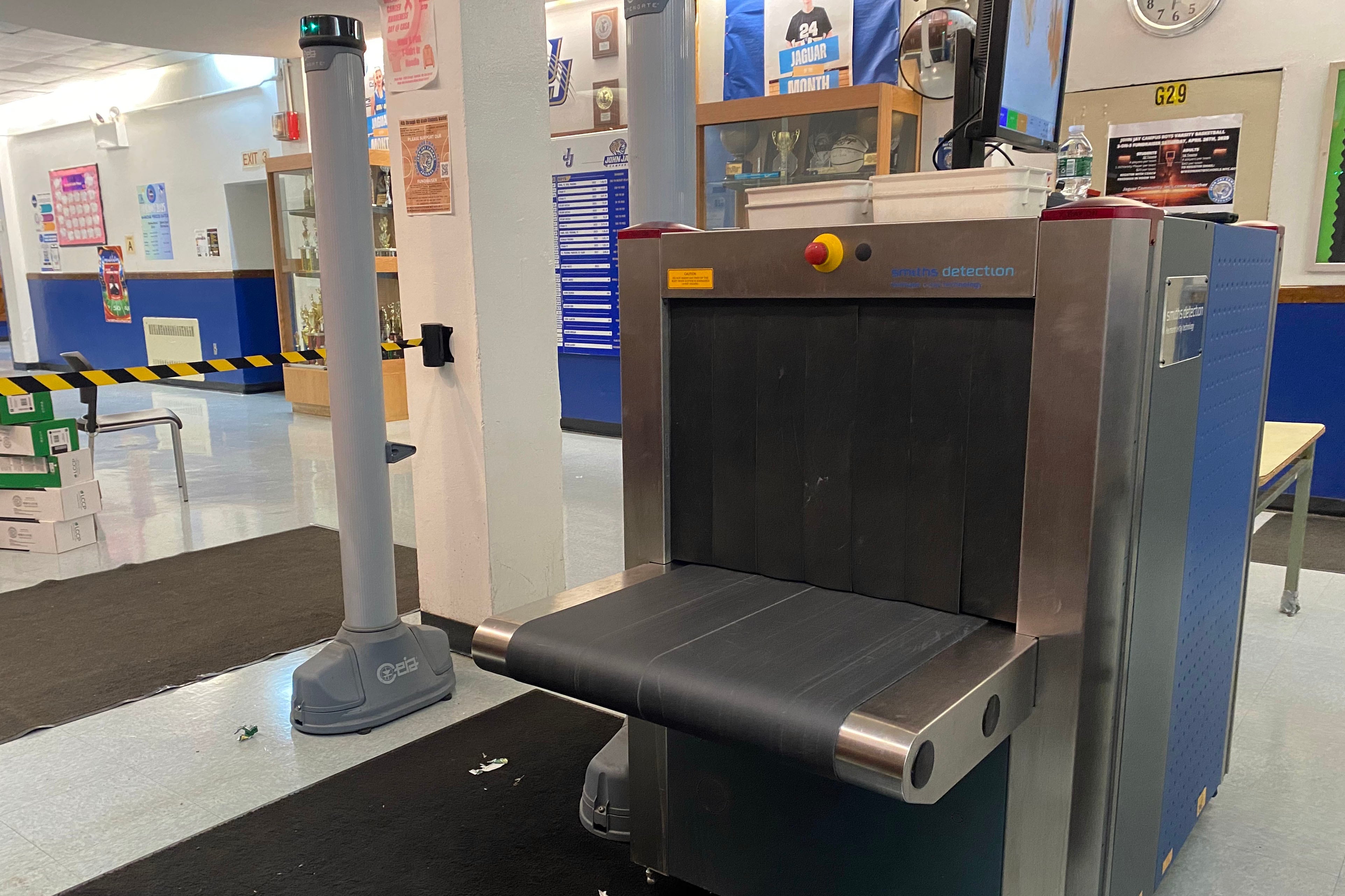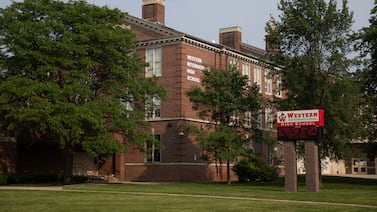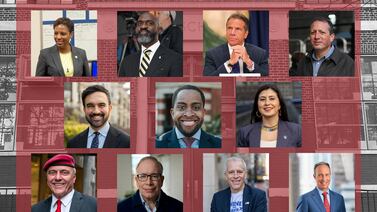Sign up for Chalkbeat New York’s free daily newsletter to get essential news about NYC’s public schools delivered to your inbox.
New York City’s pop-up school metal detector program, which scans students at random or at schools with security threats, has ground to a halt.
The problem? They have no working scanners.
The Police Department’s School Safety Division typically shows up at three or four different schools each day for random scanning. That unit “has zero operational x-ray machines due to the breakdown of antiquated metal detection equipment,” officials wrote in an emergency request for more scanners. “Therefore, the unannounced scanning unit is unable to provide any scanning whatsoever.”
The Education Department, which contends that metal detectors and X-ray machines are crucial tools to keep students safe, issued an emergency contract to buy 15 new ones for nearly $385,000. That process allows the city to purchase scanners before seeking approval from the city’s Panel for Educational Policy, a 24-member body that typically must vote on contracts.
The new scanners have yet to be delivered, Education Department officials confirmed. They did not say how long the random scanning unit has been in limbo.
“God forbid that there’s an incident and it could have been prevented if we had scanners,” said Greg Faulkner, the chair of the panel. “It’s a big deal to me.”
On top of the mobile scanning unit, 86 New York City public school campuses have permanent metal detectors and X-ray machines students must pass through. The dearth of functioning machinery is affecting those schools too, officials said, as they have no backups if a scanner stops working. Breakdowns on those campuses have led to long lines for students to get to class, principals warned earlier this school year.
The move comes amid broader concerns about school safety that have emerged this year. Roughly 120 school administrators and staffers signed an open letter calling on the city to replace broken scanners and hire more school safety agents, whose ranks have plummeted 28% over the past five years. Those staff are also responsible for operating the scanning equipment.
So far this academic year, school safety staff have confiscated 4,201 weapons and other “dangerous instruments” including 15 firearms, according to Police Department data. That is fewer than the nearly 4,800 items seized during the same period last year, though 11 guns were confiscated.
The data also include items such as tasers and pepper spray that some students carry to protect themselves during their commutes.
It’s unclear whether the decrease in the number of dangerous items found in schools is related to shortages of scanning equipment and staff, students bringing in fewer prohibited items, or other factors.
Deploying metal detectors in city schools has long sparked fierce debate. Some students and advocates say the devices make schools feel less welcoming, though some families say they offer reassurance that their kids are safe on campus.
“There is a lot of sentiment that it contributes to poor attendance and lateness rates,” said Dahlia Diez Chan, a junior at The High School for Language and Diplomacy and non-voting member of the Panel for Educational Policy.
“Decreasing the extent of scanning in schools isn’t about making schools less safe — it’s about decriminalizing schools and treating students the way we deserve,” she added during a panel meeting on Wednesday.
Other panel members were wary of the Education Department’s plan to purchase new scanners as an emergency measure, as aging equipment should be a predictable expense.
“The [Education Department’s] position is these machines that need to be replaced have gotten to the end of their useful life,” Tom Sheppard, a Bronx parent who serves on the panel, said in an interview. “My concern is that this wasn’t an actual emergency.”
Education and Police Department officials did not explain why the city hadn’t foreseen the need for scanners.
“To replace the needed scanners, this was brought to vote as an emergency item, and we are prepared to work to address any questions or concerns ahead of next week’s PEP meeting to maintain this critical service,” Education Department spokesperson Lyle wrote in a statement.
The panel was initially scheduled to vote Wednesday on a retroactive contract to approve the new scanners, but the Education Department abruptly pulled it from the agenda to address questions about the contract, officials said. Smiths Detection, the company that won the contract for new scanners, did not respond to questions.
A new vote is scheduled for April 30.
Alex Zimmerman is a reporter for Chalkbeat New York, covering NYC public schools. Contact Alex at azimmerman@chalkbeat.org.






